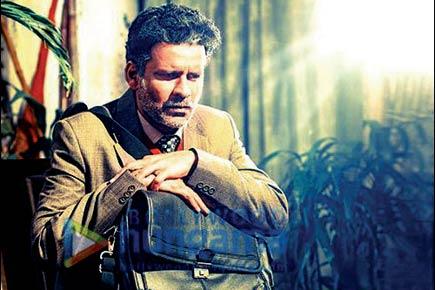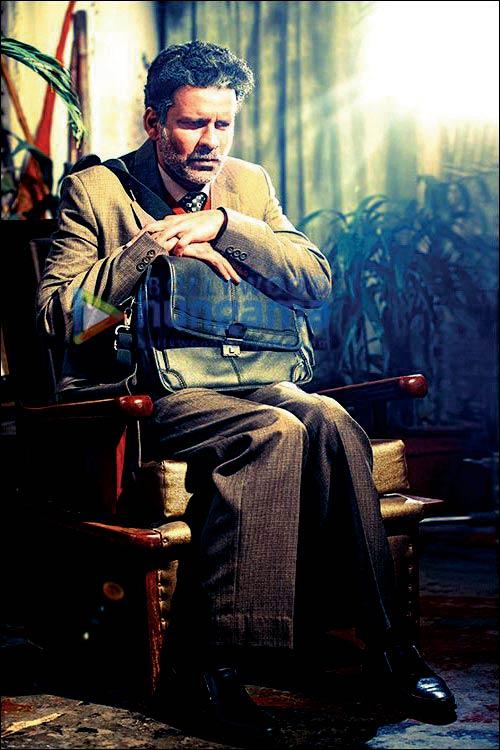Rabindranath Tagore spoke of the nation, not as mrinmaya (territorial) but chinmaya (ideational)

 Rabindranath Tagore spoke of the nation, not as mrinmaya (territorial) but chinmaya (ideational). He believed that people could have multiple, individual identities, yet identify themselves as Indian, with the idea of India. This idea of a complex, layered, multiple-identity Indian is more relevant today, when right-wing political parties impose a monolithic definition of all Indians as cow-worshipping Hindus, and to hell with facts, the truth and history. It is all the more vital to support Hansal Mehta’s Aligarh, a powerful new film that pushes the envelope in exploring multiple Indian identities. Mehta had earlier won the National Award for Best Director for Shahid.
Rabindranath Tagore spoke of the nation, not as mrinmaya (territorial) but chinmaya (ideational). He believed that people could have multiple, individual identities, yet identify themselves as Indian, with the idea of India. This idea of a complex, layered, multiple-identity Indian is more relevant today, when right-wing political parties impose a monolithic definition of all Indians as cow-worshipping Hindus, and to hell with facts, the truth and history. It is all the more vital to support Hansal Mehta’s Aligarh, a powerful new film that pushes the envelope in exploring multiple Indian identities. Mehta had earlier won the National Award for Best Director for Shahid.

Manoj Bajpai in Aligarh
Aligarh, which was shown at the Busan and London Film Festivals, will open the 17th Jio MAMI Mumbai Film Festival on October 29. The film is based on true events in the life of Dr Shrinivas Ramchandra Siras, who was Reader and Chairman of the Department of Modern Indian Languages at Aligarh Muslim University, and winner of the Maharashtra Sahitya Parishad Award. Relentlessly hounded and suspended from his job at 64, when it was discovered that he was homosexual (he had been divorced), he committed suicide in 2010. Ironically, a Delhi High Court judgement had decriminalized homosexuality in 2009 (but in 2013 the Supreme Court upheld Section 377 of the Indian Penal Code, making homosexuality a criminal offence again). The Mumbai Film Festival must be lauded for its courage in picking Aligarh as opening film. Kudos, also, to Bollywood biggie Eros International, which coproduced the film, with Hansal Mehta’s Karma Pictures.
Aligarh is masterfully directed: it is that rare film that courageously stands for human rights, including those of homosexuals, yet offers a quiet, distilled perspective. This sets it apart from other Hindi feature films that have dealt with homosexuality, such as Dostana, a clever, mainstream film that treated the subject as a comedy; although Onir’s My Brother…Nikhil and I am also had sensitive portrayals of persecuted gay men. Aligarh tells its story through the unlikely friendship between the professor (magnificently played by Manoj Bajpayee) and Deepu Sebastian Edmond (Rajkummar Rao), the journalist who consistently reported his story. Mehta wisely focuses not on Dr Siras’ sexuality-though he suffers its consequences throughout — but on his loneliness, ageing, longing and profound love for poetry and old Hindi film songs — and this brings emotional depth, making it universal.
Four university employees conspire in a television sting to “expose” Dr Siras: goons with videocameras burst into his home, film him in bed with a rickshawallah, strip and thrash them. Manoj Bajpayee plays Dr Siras with a compelling, aching intensity, in a career-redefining role rarely seen since Satya. He spends his evenings in heart-rending loneliness, lost in the beautiful poetry of old Hindi film songs. And then, just as he is savouring Lata Mangeshkar’s song Betaab dil ki tamanna yahi hai, he suddenly swats a mosquito!
Indeed, a major strength of the film is the superb screenplay and dialogues by Apurva Asrani which, while tackling big issues, keeps it personal, nuanced and flecked with wicked humour (originally an editor; he edited Satya and Hansal Mehta’s Shahid, and co-wrote Shahid). His script teases out many contrary elements in Siras’ life and character. That this Maharashtrian from Nagpur was a professor of Marathi in a Muslim university; that he was divorced and gay, so he was bisexual. A different kind of ‘Marathi manoos’, you might say. When lawyers and human rights activists campaigned to reinstate him, he did not want to participate in the activism; painfully shy, he just wanted to be left alone; he even dozes off in court. One flaw in the script is it tries to ‘balance’ Dr Siras’ gay relationship with a heterosexual fling between Deepu and Namita, his female boss at the newspaper, that is awkward and forced. Also, we wish we knew a little more about his family background, that made him so lonely — but we can overlook it.
Rajkummar Rao is credible as a chalu reporter, who has a change of heart. Satya Rai Nagpaul’s cinematography effectively evokes the cold, tubelight-bathed interiors of bachelor pads. When a prospective landlord brushes off Manoj with “Bachelors are not allowed,” the latter explodes, “Are bachelors terrorists?” echoing the cry of millions of Indian singles looking for rented accommodation. Much worse, those who caused Dr Siras’ suicide, still roam free.
Meenakshi Shedde is South Asia Consultant to the Berlin Film Festival, award-winning critic, curator to festivals worldwide and journalist. Reach her at meenakshishedde@gmail.com. The views expressed in these columns are the individual’s and don’t represent those of the paper.
 Subscribe today by clicking the link and stay updated with the latest news!" Click here!
Subscribe today by clicking the link and stay updated with the latest news!" Click here!







